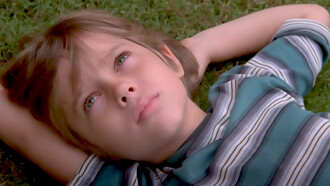A Night to Remember
It was with great anticipation that we made our way to London’s Royal Albert Hall for the opening concert of the annual BBC Proms on a balmy summer night 15 July. Running for 8 weeks and ending with the famous Last Night of the Proms on 10 September it is safe to say that the Proms are now established as the world’s oldest and most extensive festival of classical and modern music, the first Proms concert taking place on 10 August 1895, a brainchild of the impresario Robert Newman, manager of the newly built Queen's Hall in London.
Newman found the perfect partner in Henry Wood who had made a name for himself as an organist, accompanist, composer and arranger, vocal coach and conductor of choirs, orchestras and amateur opera companies. He arranged to meet Wood at Queen's Hall one spring morning in 1894 to talk about the project. 'I am going to run nightly concerts to train the public in easy stages,' he explained. 'Popular at first, gradually raising the standard until I have created a public for classical and modern music.' This vision later resonated perfectly with the education intent of the newly established BBC and ever since the festival has grown and developed into what we know it to be today.
Yet, although the scope of the Proms has increased enormously since 1895, Henry Wood's concept for the season remains largely unaltered: to present the widest possible range of music, performed to the highest standards, to large audiences. No single platform in the world of classical music offers plethora of diverse talent and brilliance within the boundaries of a single festival, offering audiences opportunity to hear new and familiar music alike, performed by an array of many of the world’s best soloists and orchestras. And promenading in the Royal Albert Hall's arena continues to be a central feature, lending the Proms its unique, informal atmosphere.
The promenaders certainly made their presence felt on the first night, proclaiming their intent, as before, to raise large funds for musical charities and cheering for the Argentinian soloist, Sol Gabetta, performing Elgar’s deeply nostalgic Cello Concerto - a piece which for many has captured the very soul of the instrument - and indeed the first of 10 concertos spotlighting the cello this season including world premieres. Another theme running through the season is a celebration marking 400 years since the death of Shakespeare, most fittingly begun by Tchaikovsky’s dramatic Romeo and Juliet Overture as the first piece on the programme. But even before those powerful tones were allowed to stir emotions under the baton of the BBC Symphony Orchestra principal conductor, Sakari Oramo, he conducted La Marseillaise in memory of victims of the attack in Nice the day before which the audience rose to in silent condolence.
This solemn tribute set the stage for a very moving performance of music, concluded with Prokofiev’s cinematic cantata drawn from his music for Sergey Eisentein’s 1938 film honouring an earlier Russian hero, the medieval warrior Alexander Nevsky. Prokofiev delivered a score of new directness and clarity for his friend’s patriotic film, most prominent in the cantata. Joining forces, the BBC national Chorus of Wales and the BBC Symphony Chorus came out in full force to portray this tale of a great Russian hero with the splendid mezzo-soprano Olga Borodina, the cantata featuring the dramatic ‘Battle on the Ice’.
Thus ended the first night of the Proms and for those who would like to attend the festival this year there are ample opportunities throughout August and early September with concerts, talks, workshops, family events and more, all culminating in the world-famous Last Night of the Proms, Saturday 10 September, in Royal Albert Hall and Hyde Park, an event well worth noting down in the diary. And even if you can’t make it this year, be sure to pencil the 123rd season of the Proms in for 2017 with the programme to be announced in April.















